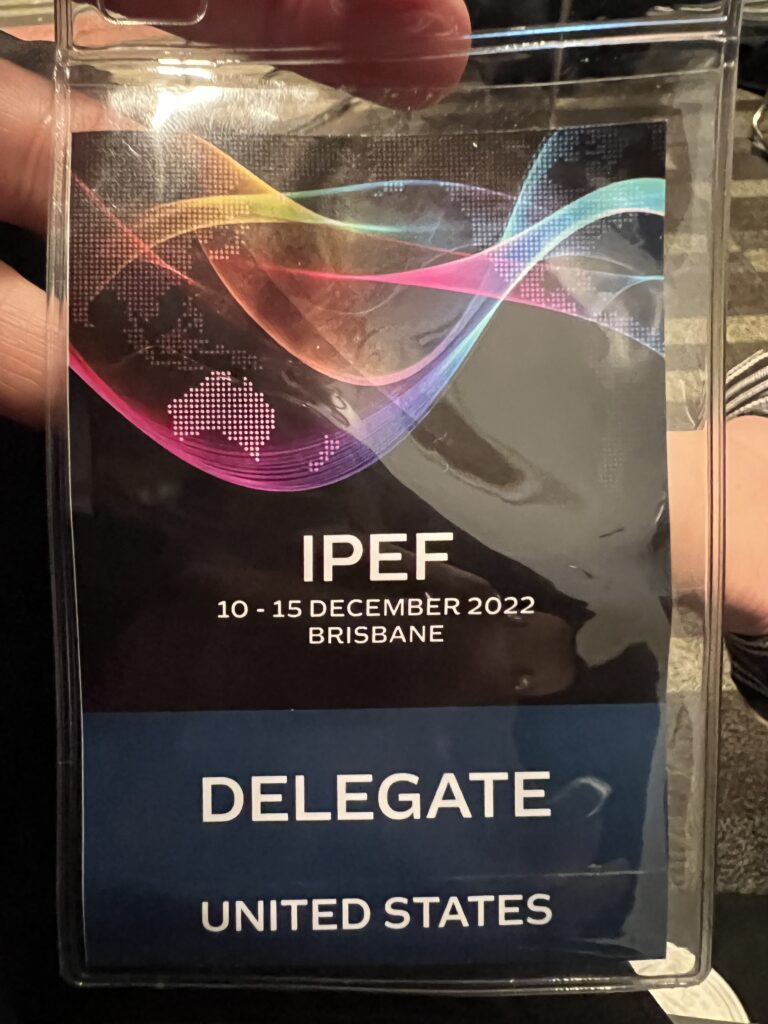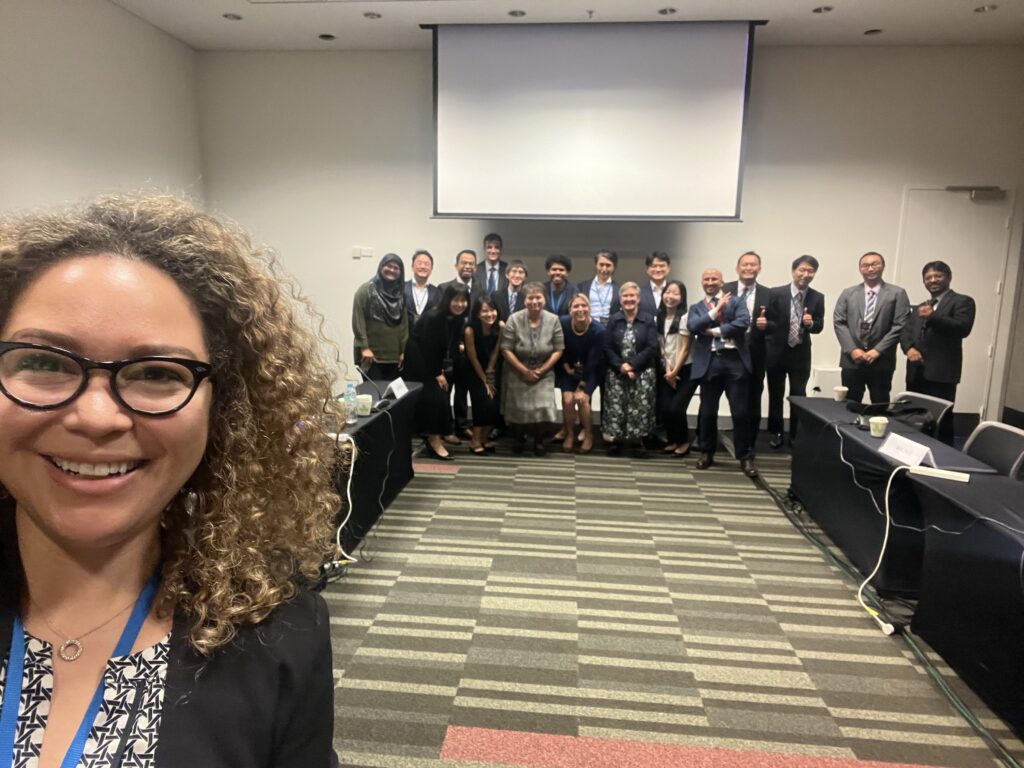Assistant Chief Counsel for International Trade Rosalyn Steward attended the Indo-Pacific Economic Framework for Prosperity (IPEF) in Brisbane, Australia. IPEF is a modern regional arrangement to build cooperation and economic integration in the Indo-Pacific. The Land Down Under hosted the first round of talks, meeting December 10-15, 2022. IPEF has four pillars: Trade, Supply Chains, Clean Economy, and Fair Economy. The US chaired the round, with the US Trade Representative leading Pillar I and the Department of Commerce leading Pillar II.

IPEF brings together some of the largest and most dynamic regional economies, accounting for around 40 percent of global GDP. The founding members of IPEF are Australia, Brunei Darussalam, Fiji, India, Indonesia, Japan, Malaysia, New Zealand, the Philippines, Republic of Korea, Singapore, Thailand, the US, and Vietnam. IPEF will not be a traditional Free Trade Agreement and at this stage will not include market access for goods and services.
The Office of Advocacy participated in Pillar I negotiations which include Good Regulatory Practices (GRPs). GRP elements in trade agreements are focused around three elements: transparency, informed decision making, and coordination. GRPs have benefits for every country’s domestic economy but also for trading partners because they provide predictability to attract foreign direct investment and limit regulatory differences that disrupt trade. Small businesses are often disproportionately impacted by regulations due to outsized costs of compliance and having smaller economies of scale to address those costs. GRPs help level the playing field for small businesses by allowing all interested parties to have access to the same information and analyses that inform regulatory decisions and by providing opportunities for input during public comment processes. Finally, the implementation of GRPs provide for special consideration of the impact of regulations on small business and for the adoption of effective alternatives that minimize small entity impacts. The next round will be held in Indonesia in March.

